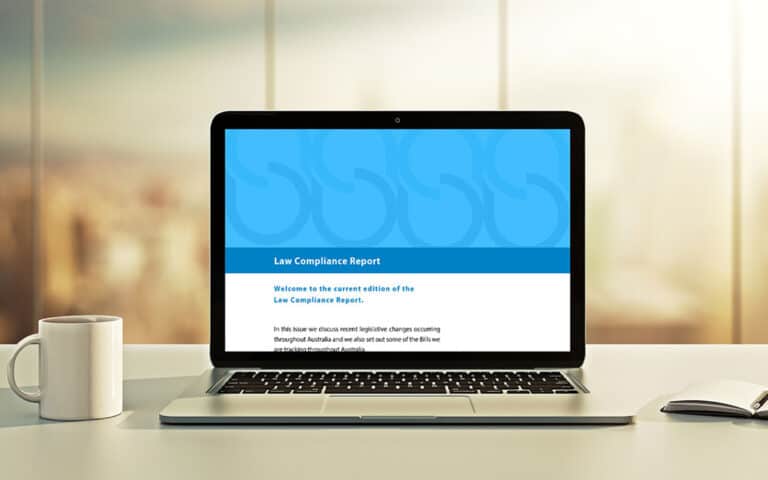This article applies to organisations working with Aboriginal and Torres Strait Islander children and young people.
Aboriginal and Torres Strait Islander Children and Young People Commissioner Bill 2022 (ACT)
Please be advised that on 29 November 2022 the Aboriginal and Torres Strait Islander Children and Young People Commissioner Bill 2022 (ACT) (the Bill) passed the ACT parliament and will commence on the day after its notification day.
The Bill establishes the office of the Aboriginal and Torres Strait Islander (ATSI) Children and Young People Commissioner with objectives to promote and protect the rights of and advocate for ATSI children and young people. The ATSI Children and Young People Commissioner (the Commissioner) has powers and functions to conduct an inquiry into any matter relating to systemic issues that affect, or may affect, the rights, development, safety and wellbeing of ATSI children and young people, as well as to advise and make recommendations to the government. The Bill also contains several offences for failure to comply with the powers of the Commissioner and makes consequential amendments to other legislation, including the Children and Young People Act 2008 (ACT).
Obligations – Recommendations in relation to inquiry and advocacy
If the Commissioner undertakes an inquiry relevant to an entity, section 23 of the Bill provides that the Commissioner may give the entity a notice setting out any recommendations and require a response. The person in charge of the entity must respond within the stated time unless they have a reasonable excuse.
If the Commissioner advocates on behalf of an ATSI child or young person, section 24 of the Bill provides that the Commissioner may give the person in charge of an entity a notice setting out the matter in relation to which the Commissioner is advocating, any recommendation and require a response. The person in charge of an entity must respond within the stated time unless they have a reasonable excuse.
Offences – Information gathering and sharing
Commissioner’s power to require information, documents, and other things
If the Commissioner believes on reasonable grounds that a person can give information or produce a document or other thing that the Commissioner considers necessary to exercise its functions, section 27 of the Bill provides that the Commissioner may require them to give information or produce a document or other thing. However, this power does not apply to sensitive information and the Commissioner must not require an ATSI child or young person or a member of their family to give information, documents, or other things. A person commits an offence under section 30 of the Bill if they fail to comply with section 27 without a reasonable excuse. The maximum penalty is 50 penalty units (currently $9,246).
There are two limitations on the Commissioner’s power to require information, documents and other things:
- If practicable, the Commissioner must ask for identifying information to be removed from any information, document or thing that is produced under section 27 of the Bill (section 28 of the Bill).
- The Commissioner must not require personal information to be given under section 27 without an individual’s consent, unless reasonable steps have been taken to seek the individual’s consent and the Commissioner reasonably believes there is a significant risk to the wellbeing of an ATSI child or young person and accessing the information is necessary to effectively advocate (section 29 of the Bill).
Commissioner’s power to require attendance
If the Commissioner believes on reasonable grounds that a relevant person for an entity can give information relevant to an inquiry, section 31 of the Bill provides that the Commissioner may require the person to attend before an official to answer questions. However, the Commissioner must not require an ATSI child or young person or a member of their family to attend before an official to answer questions. A person commits an offence under section 32 of the Bill if they fail to attend before an official, or fail to continue to attend before an official, or fail to answer a question, without reasonable excuse. The maximum penalty is 50 penalty units (currently $9,246).
For the purposes of section 31 of the Bill, a relevant person, in relation to an entity, means a person who is or was employed by, or involved in the management or administration of, the entity, and employed includes persons engaged as a volunteer, consultant or contractor.
Secrecy
Section 35 of the Bill contains a secrecy offence. Information holders commit an offence:
- if they make a record of protected information about someone else and are reckless about whether the information is protected information; or
- if they do something that discloses protected information about someone else and are reckless about whether the information is protected information and doing the thing would result in the information being disclosed.
An information holder is defined in section 35 of the Bill and includes a person who is required (under section 27 of the Bill) to give the Commissioner information, documents or things or a person who is required to attend before an official (under section 31 of the Bill) to answer questions in relation to an inquiry.
This offence does not apply if the record is made or information is disclosed with consent, under this Bill or another territory law, or in relation to the exercise of a function, as an information holder, under this Bill or another territory law. The maximum penalty is 50 penalty units (currently $9,246) or 6 months imprisonment or both.
Amendments to the Children and Young People Act 2008 (ACT)
The Bill amends, among other legislation, the Children and Young People Act 2008 (ACT) (the Act) to include the Commissioner as:
- mandated reporter in section 356 of the Act; and
- an information holder in section 843 of the Act.
Please click here to access the full Bill.




